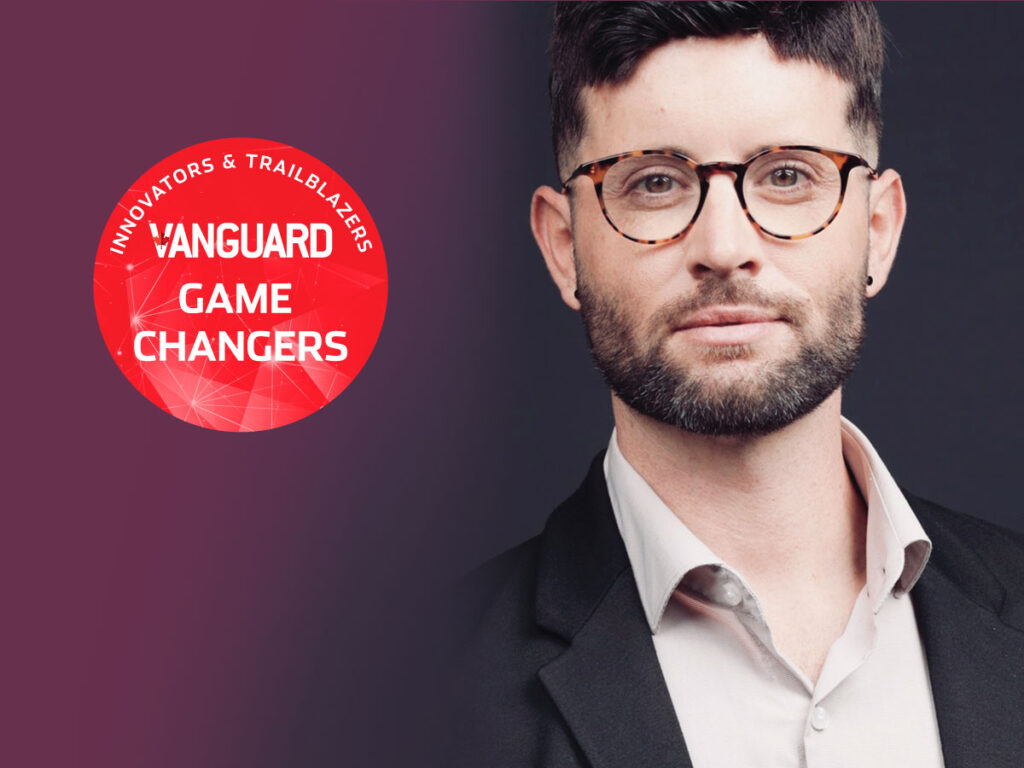Craig White is Vice President of Strategy at RaceRocks and one of our August/September Game Changers. He began his journey into the defence and training industry in an unexpected way and soon discovered his passion. Craig joined RaceRocks as a Project Manager in the company’s early days and now plays a multifaceted role that reflects the dynamic nature of the company.
How did you start out in this industry and how has it brought you to where you are today?
My journey into the defence and training industry began unexpectedly, rooted in the fundamental principles of relationship building and networking. Initially, I never anticipated a career in this field, but it was through connections formed along the way that I found my path. Six years ago, I joined RaceRocks as a Project Manager, at a time when the team was just a tight-knit group of nine. This initial step set the stage for where I am today.
What is your role at your organization today?
In my current role as VP of Strategy at RaceRocks, I wear many hats, reflecting the dynamic nature of working in a small-medium sized business. My responsibilities span across project management, marketing and communications, business development, and finance. I liken my role to that of a conductor, ensuring that all our team members, or ‘RaceRockers’ as we call them, are collaborating and driving our company’s objectives forward.
What was your most challenging moment?
Navigating through periods of imposter syndrome has been my most challenging experience. As a leader deeply invested in the well-being of our team and the success of our business, the doubt of ‘Am I doing enough?’ often crept in. Overcoming this involved a deep dive into industry knowledge and fostering open listening environments, which equipped me with the necessary tools to effectively support RaceRocks and the broader Canadian defence supply chain.
What was your A-HA moment or epiphany that you think will resonate most with our reader, tell us that story.
One of my defining moments came during a complex project where the integration of our training solutions with client needs wasn’t aligning as expected. The breakthrough was realizing the power of adaptive learning technologies, which could dynamically adjust to learner feedback. This insight has since shaped our approach to training, R&D and innovation.
How has innovation become engrained in your organization’s culture and how is it being optimized?
At RaceRocks, innovation is a constant. Last year, we received Series A funding, and we’ve invested a big part of that into our R&D efforts. We’re building out a strong team of experts focused on immersive learning and adaptive solutions. We’re thinking long-term in everything we do, from developing next-gen training tools to making sure they’re scalable and future-proof.
What people or organizations do you believe best embody the innovation mindset?
The people and organizations that truly embody an innovation mindset are the ones that prioritize collaboration and creativity. They understand that the best ideas come from combining different perspectives to create something truly unique.
What technologies, business models, and trends will drive the biggest changes in your industry over the next two years?
At RaceRocks, we are focused on the technologies, business models, and trends that will drive innovation in the defence industry over the next two years. We’re closely monitoring AI, machine learning, and data analytics because these are essential. However, our main focus is on adaptive learning—tailoring training to meet the specific needs of each learner to ensure the best outcomes. Our business model emphasizes R&D, allowing us to position RaceRocks as a key training partner within the CAF. Additionally, we’re keeping a close eye on developments in training infrastructure, like the Total Learning Architecture (TLA), ensuring that our immersive training solutions are not only modular and scalable but also seamlessly integrate with the existing and future of the CAF infrastructure. This approach allows us to think long-term, offering solutions that are both forward-thinking and practical, aligning with the training modernization strategies within the CAF.
What is a habit that contributes to your success?
I firmly believe in leading with a human-first approach. This has been supportive in assembling teams that aren’t just skilled but are deeply committed to our mission. This human-centric leadership has cultivated a supportive and innovative work environment, which I believe will lead to our continued success in the defence sector.
What is your parting piece of advice?
Navigating the intersections of technology, defence, and business as an SME is never straightforward. It’s a path filled with challenges but also immense opportunities. Staying creative, proactive, and well-informed about industry dynamics ensures that you are always at the right discussions, making impactful decisions

